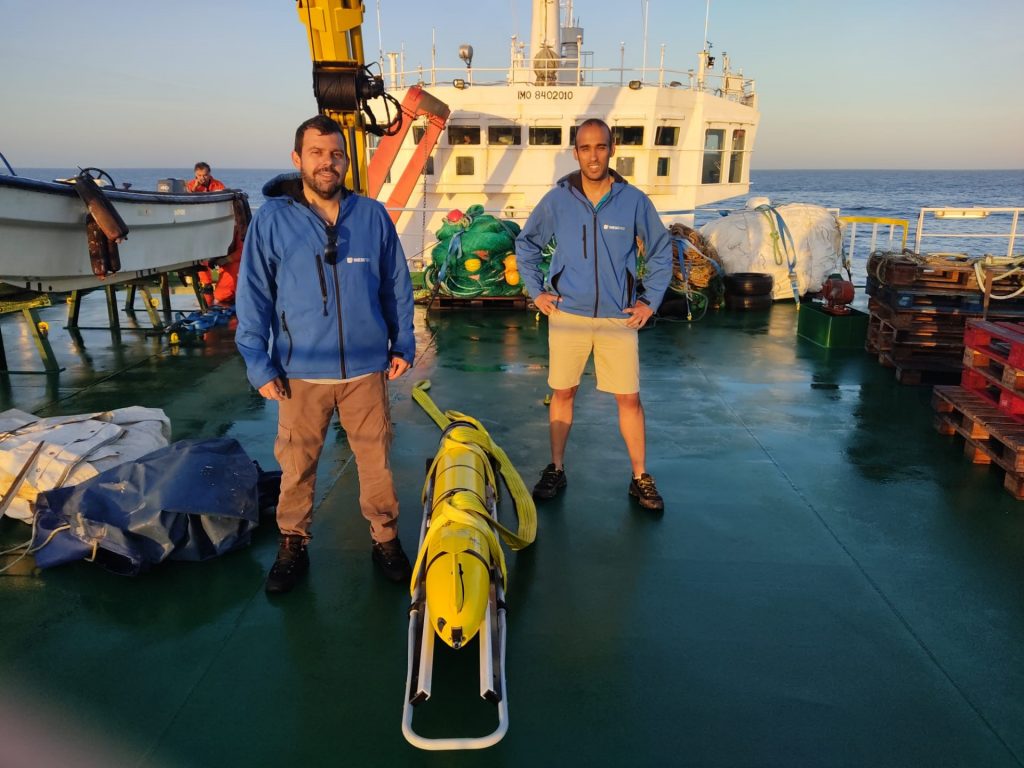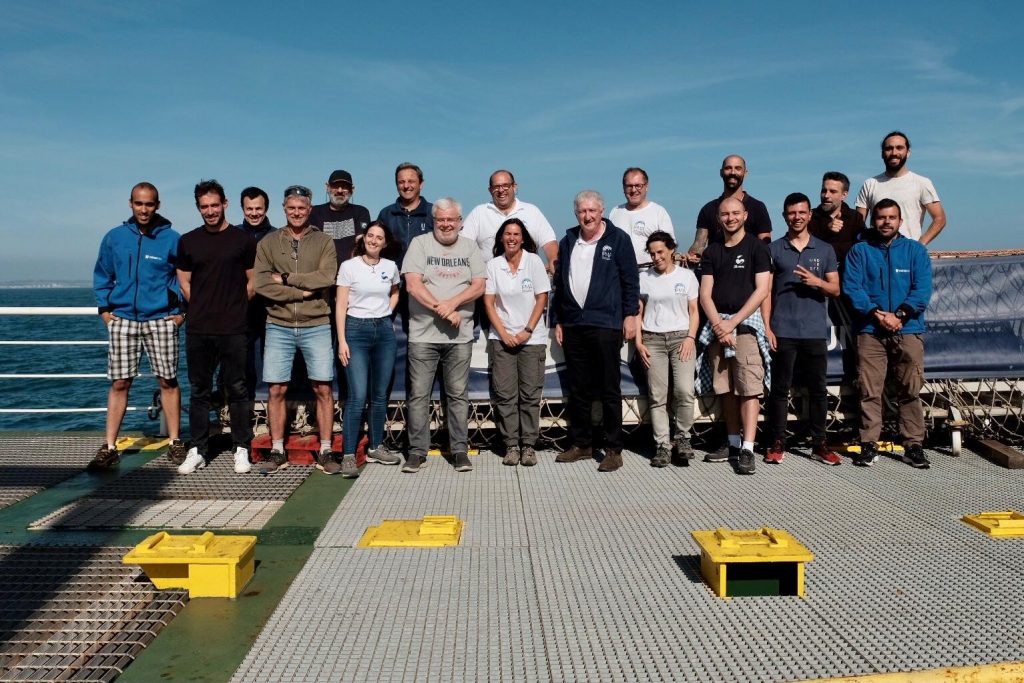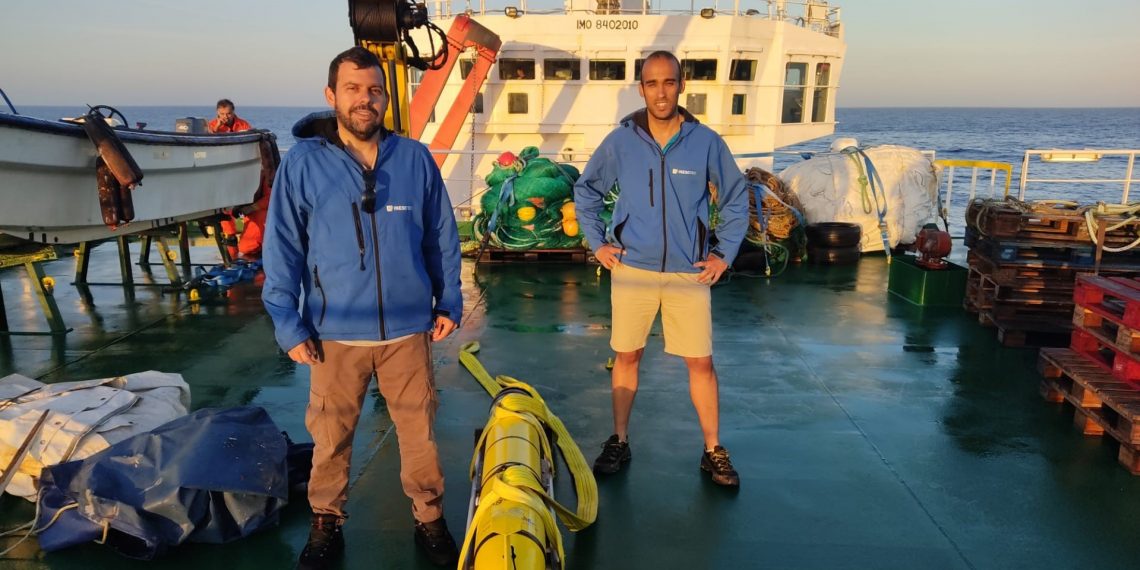INESC TEC researchers participated in the latest campaign by the Portuguese Institute for the Ocean and Atmosphere (IPMA), focused on installing oceanographic equipment capable of collecting data in Portuguese waters.
The scientists and researchers who participated in the campaign (headed for Sagres), boarded the Mário Ruivo, a 71-metre IPMA ship, departing from the Lisbon Naval Base. The scientific campaign took place within the scope of EMSO-PT, a Large-Scale European Research Infrastructure consisting of multidisciplinary underwater observatories and other support infrastructures for data processing. The researchers carried out several tasks in Sagres; however, it was during their return, near Sesimbra, that Nuno Abreu and Eduardo Azevedo – from the Centre for Robotics and Autonomous Systems (CRAS) – operated the Slocum Glider, an autonomous vehicle designed to sample underwater environments.

“One of the activities INESC TEC will develop within the scope of EMSO-PT is the operation of the Slocum Glider, in order to acquire oceanographic data for other partners. The Glider is a mobile oceanographic station capable of operating in the ocean autonomously, and for several months. It can acquire data such as oxygen dissolved in water, conductivity, depth, temperature, fluorescence and the amount of chlorophyll”, said Nuno Abreu.
The remaining team also launched other sensors. One of them, the Wirewalker (Profiler) uses the energy of waves to operate over long periods of time, measuring various physical water parameters, as well as the currents. The team also launched three ocean bottom seismometers, i.e., sensors deposited on the seabed (up to six kilometres) that measure seismic activity, record sounds of marine mammals and assess other parameters.

The European initiative EMSO-PT aims to provide continuous scientific information on marine environmental processes related to the interaction between the geosphere, the biosphere, and the hydrosphere. On board were researchers from IPMA, University of Algarve, Universidade Nova de Lisboa, CIIMAR and INESCTEC.
The researchers mentioned in this news piece are associated with INESC TEC.




 News, current topics, curiosities and so much more about INESC TEC and its community!
News, current topics, curiosities and so much more about INESC TEC and its community!